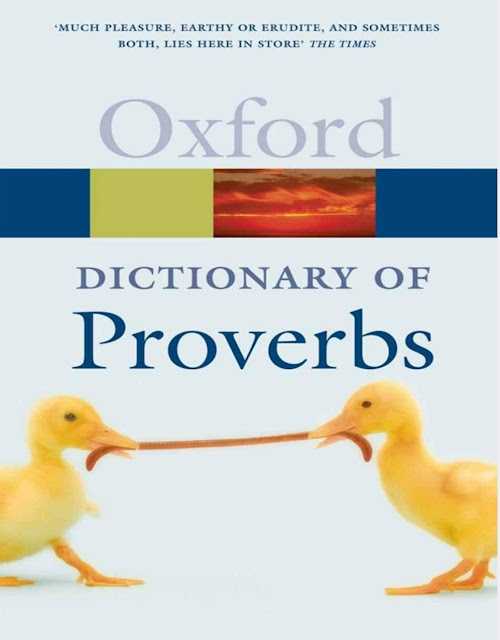Oxford Dictionary of Proverbs
The Concise Oxford Dictionary of Proverbs provides a general history of proverbs in common use in Britain in the last two hundred years. Some of the proverbs have been in use throughout the English-speaking world for many years; others (especially Scottish proverbs) have spread from regional use to attain general currency in the nineteenth and twentieth centuries.
Proverbs which originated in the United States and in other countries outside the British Isles, such as If you don’t like the heat, get out of the kitchen or The apple never falls far from the tree, are included if they are now current in Britain, or if they are particularly prevalent in their region of origin.
A proverb is a traditional saying which offers advice or presents a moral in a short and pithy manner. Paradoxically, many phrases which are called ‘proverbial’ are not proverbs as we now understand the term. We might for instance refer to ‘the proverbial fly on the wall’ or say that something is ‘as dead as the proverbial dodo’, although neither of these phrases alludes to a proverb.
The confusion dates from before the eighteenth century, when the term ‘proverb’ also covered metaphorical phrases, similes, and descriptive epithets, and was used far more loosely than it is today. Nowadays we would normally expect a proverb to be cast in the form of a sentence.
DOWNLOAD :- HERE
